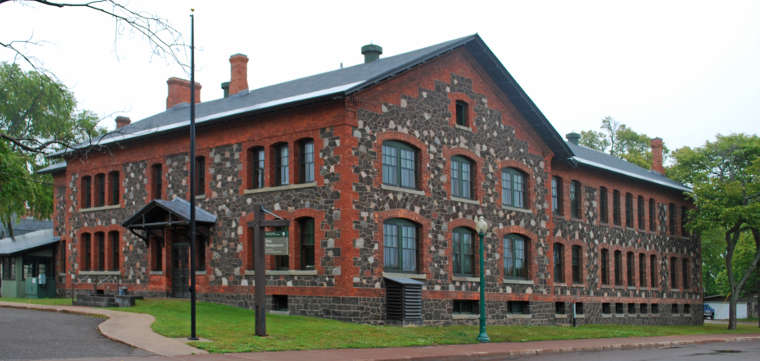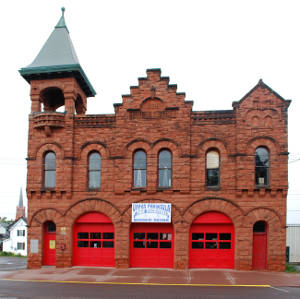Keweenaw National Historical Park

Keweenaw National Historical Park Headquarters

Calumet Fire Station Museum
Keweenaw National Historical Park is a joint cooperative project between federal, state and private interests. The National Park Service owns about 1,869 acre of the park while the rest is held as cooperating "Heritage Sites," scattered up and down the peninsula. The NPS properties are managed as 2 units: Calumet and Quincy.
The Keweenaw Peninsula is the site of the oldest and largest known lava flow on the surface of the Earth. That lava flow deposited large amounts of easily recoverable 97% pure native copper across the landscape. Evidence points to aboriginal mining of the copper beginning about 7,000 years ago. Prehistoric artifacts made from that copper have been found as far away as Alabama.
When news of the copper first spread to Europe, a number of families from Cornwall immigrated to the area and brought their knowledge of hard rock mining with them. While a number of their mine shafts in the area reached 1,000 feet or more in depth, the Quincy Mine went down more than 9,000 feet. In the late 1800's, many families from Finland immigrated to the Upper Peninsula and worked in the mines, too.
Between 1840 and 1968, more than 11 billion pounds of copper were removed from the area. The last mining employer in the area, the Calumet and Hecla Mining Company, ceased operations in 1968, leaving buildings, equipment, mine shafts and other historic materials across the peninsula. Other large mines ceased operations in the 1920's, also leaving evidence in the area.
Keweenaw National Historical Park was established in 1992. The heritage site system came into being in 2007 and two sites were added to it in 2013. The park is now 21 organizations with 28 sites spread across 800,000 acres of the peninsula. Among the sites are several Finnish-American and Cornish-American homesteads, all restored to earlier times. There are also several Michigan state parks, local museums and a former Carnegie Library. Hours and days open vary by site, as do entry fees. The National Historical Park has no entry fee.